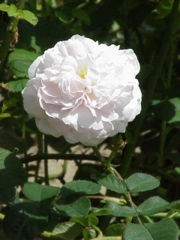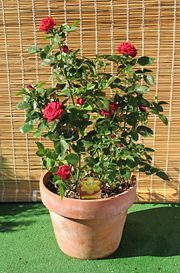Rose bushes are susceptible to many damaging insects, including the rose midge larva, rose cane borer, stem girders, thrips, aphids, Japanese beetles, sawflies (or rose slug), mites, scale insects, caterpillars, and rose chafers, to name a few. There are several options for controlling these pests.
[caption id="attachment_58" align="alignnone" ...
Have you ever wondered why the string of prayer beads used by Catholics is called a rosary? Well, the answer lies in the bush outside your window. Once, the beads in rosaries were made from rose petals. Many modern rosaries are made from wood, silver, or glass, ...
One of the very best soil amendments to use for rose bushes—or any other plant in your garden—is compost. Using compost improves soil structure, texture, and aeration and increases the soil's water-holding capacity. Compost loosens clay soils and helps sandy soils retain water. Adding compost improves soil fertility ...
Fertilizer is, simply put, food for roses. And roses love to eat. If you feed your bushes a healthy, nutritional diet, they will take the fertilizer and turn it into big, beautiful blooms. Here’s how to do it. (Note that if you get the bushes initially through a ...
When it comes to roses, good pruning is essential to good health. Pruning removes dead wood, controls the shape of your bush, and encourages vigour and healthy flowers. The time to prune is in late winter while your bushes are still dormant, just before you put down ...


